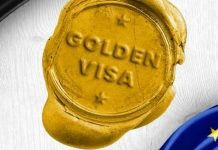The Bangkok of Thailand (BoT) says Thailand has a very strong economic foundation despite the heavy costs of political unrest.
Talking about the recent economic developments and outlook of the Thai economy, Governor of the Bank of Thailand Prasarn Trairatvorakul said that, in 2013, Thailand did not benefit from exports as much as expected, thanks to the weak global economic recovery and domestic supply constraints. Furthermore, tourism was seriously affected by the political crisis. Economic performance in the first quarter of 2014 was also unsatisfactory.
However, Dr. Prasarn pointed out that a second quarter of negative growth is unlikely to occur, as the latest economic data for March 2014 suggests that growth may have reached the lowest point. Furthermore, a so-called “technical recession” would occur only if economic fundamentals simultaneously deteriorated, which is a lengthy process. To date, this situation does not apply to Thailand.
He further explained that the country’s financial volatility is well-contained amidst the economic slowdown. Exchange rates have been relatively stable and international reserves have remained high, reflecting certain degree of confidence among foreign investors and appropriate exchange rate management. Inflation expectations are firmly anchored, allowing monetary policy some room to address the downside. Thailand benefits from this stability because consistent macroeconomic policy commands credibility from the public.
He added that the unemployment rate in Thailand is low and stable, leaving households with enough purchasing power to start spending again when the economy rebounds. Greatly adding to the strength of domestic purchasing power is the export sector. Global recovery has become firmer, as recent economic indicators reflect the more resilient recovery in advanced economies.
The overall impact for Thailand is that exports are still expected to be the country’s main engine of growth in 2014. The risk to watch out for concerning exports stems again from the monetary policy changes of advanced economies. These policy changes could cause an economic slowdown in ASEAN and China, further affecting Thai exports to these countries. However, this type of risk is still remote. Dr. Prasarn stated that other fundamentals included Thailand’s location and workforce advantages. Thailand is located in the center of ASEAN and has well-developed logistics. It serves as a hub for trade with the CLMV countries – Cambodia, Lao PDR, Myanmar, and Viet Nam. This presents an opportunity to access fast-growing markets.
As for the workforce, Thailand’s semi-skilled labor fills an important niche in the world market. The return to net inflow of foreign investment since the beginning of April 2014 indicates the return of foreign interest in Thailand. However, Thailand’s structural improvement has a long way to go. Furthermore, economic fundamentals may be eroded if political uncertainty and global risks intensify.




